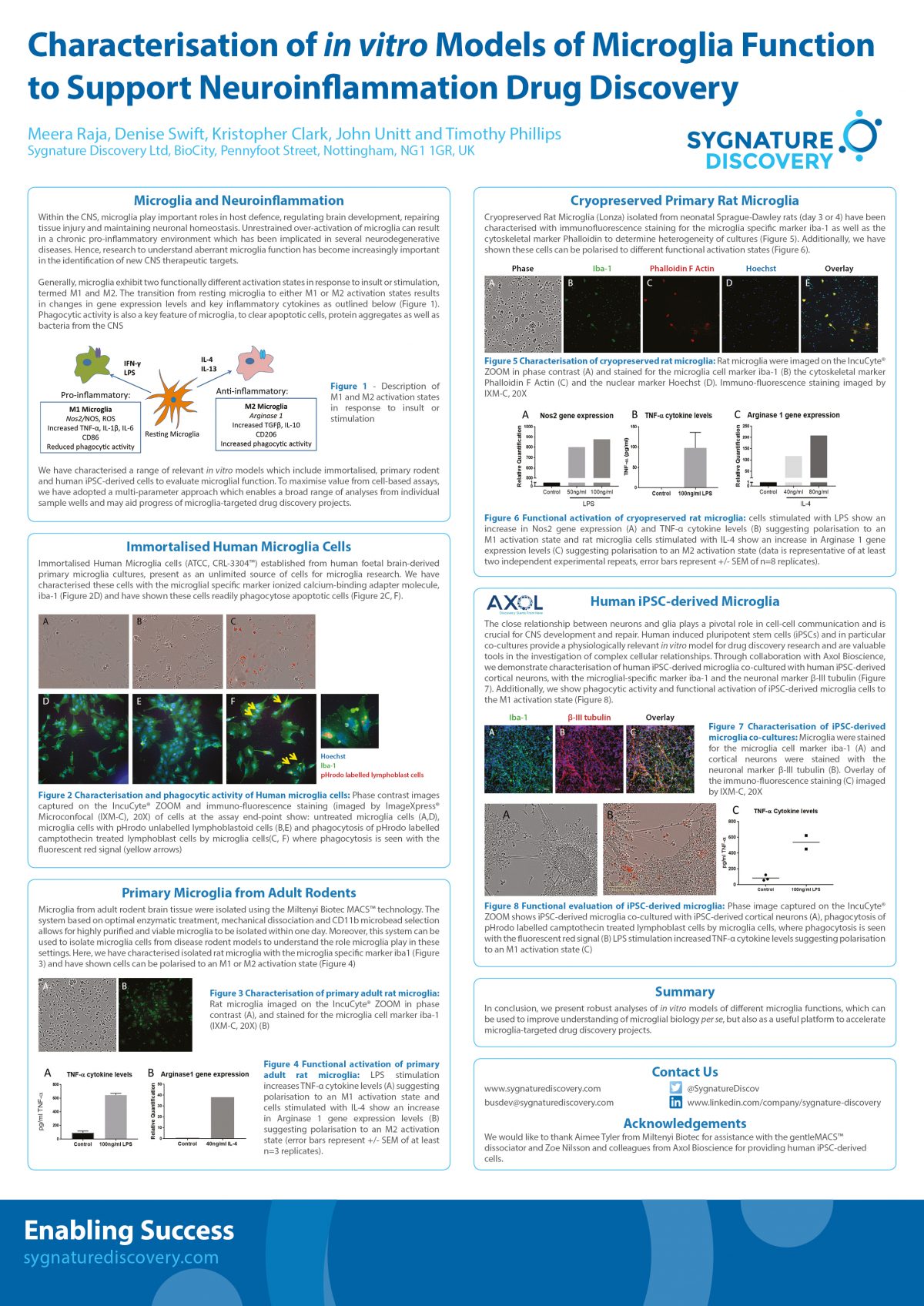Characterisation of in vitro Models of Microglia Function to Support Neuroinflammation Drug Discovery
Abstract
Within the CNS, microglia play important roles in host defence, regulating brain development, repairing tissue injury and maintaining neuronal homeostasis. Unrestrained over-activation of microglia can result in a chronic pro-inflammatory environment which has been implicated in several neurodegenerative diseases. Hence, research to understand aberrant microglia function has become increasingly important in the identification of new CNS therapeutic targets.
Generally, microglia exhibit two functionally different activation states in response to insult stimulation, termed M1 and M2. The transition from resting microglia to either M1 or M2 activation states results in changes in gene expression levels and key inflammatory cytokines as outlined below (Figure 1). Phagocytic activity is also a key feature of microglia, to clear apoptotic cells, protein aggregates as well as bacteria from the CNS
We have characterised a range of relevant in vitro models which include immortalised, primary rodent and human iPSC-derived cells to evaluate microglial function. To maximise value from cell-based assays, we have adopted a multi-parameter approach which enables a broad range of analyses from individual sample wells and may aid progress of microglia-targeted drug discovery projects.We have characterised a range of relevant in vitro models which include immortalised, primary rodent and human iPSC-derived cells to evaluate microglial function. To maximise value from cell-based assays, we have adopted a multi-parameter approach which enables a broad range of analyses from individual sample wells and may aid progress of microglia-targeted drug discovery projects.

